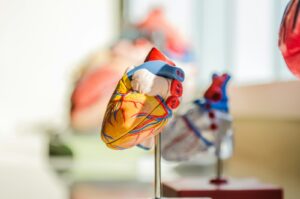Scientists explained sound sleep is like ‘turning on the dishwasher before you go to bed and waking up with a clen brain’.
Have you ever slept so well that when you’ve woken up, you can’t remember what day it is or even your own name? This particular form of rest is what scientists examined in their new study that was published in the Cell Press journal Cell this afternoon.
Experts demonstrated how deep sleep may wash away waste buildup in the brain that was created during waking hours – an essential process for maintaining good brain health.
‘It’s like turning on the dishwasher before you go to bed and waking up with a clean brain,’ said senior author of the study, Maiken Nedergaard of the University of Rochester and University of Copenhagen. ‘We’re essentially asking what drives this process and trying to define restorative sleep based on glymphatic clearance.’
The glymphatic system – a network of spaces that runs parallel to blood vessels in the brain – helps move fluid through the brain to clear waste and replenish it. The process is most active during sleep and can be encouraged by exercise and practicing good sleep hygiene.
To conduct the research, Nedergaard and her team analysed mice’s brains when they slept. They discovered that a molecule called norepinephrine triggers a rhythmic pulsation in the blood vessels which act as pumps to propel the surrounding brain fluid to flush out any waste.
‘You can view norepinephrine as this conductor of an orchestra,’ explained Natalie Hauglund, lead author of the study and researcher at the University of Copenhagen and the university of Oxford. ‘There’s a harmony in the constriction and dilatation of the arteries, which then drives the cerebrospinal fluid through the brain to remove the waste products.’
Following this realisation, researchers wondered if sleep aids such as sleeping pills would help flush out any waste buildup. To find out, experts gave mice zolpidem – a common drug used to help people sleep.
To their surprise, scientists found that also the mice on sleeping pills fell asleep faster, fluid transport into the brain dropped more than 30%, suggesting sleep aids may disrupt the cleaning process that starts during deep sleep.
Hauglund said: ‘More and more people are using sleep medication, and it’s really important to know if that’s healthy sleep. If people aren’t getting the full benefits of sleep, they should be aware of that so they can make informed decisions.’
Although this work is still in the early stages, researchers have claimed the findings will likely apply to humans, but it requires further testing.
Nedergaard added: ‘Now we know norepinephrine is the driving cleaning of the brain, we may figure out how to get people a long and restorative sleep.’
A link to the full research, which was supported by a number of organisations, including the Lundbeck Foundation, the Novo Nordisk Foundation and the National Institutes of Health, can be accessed here.
In related news:
Domestic abuse risk increases for mistreated children – research

















